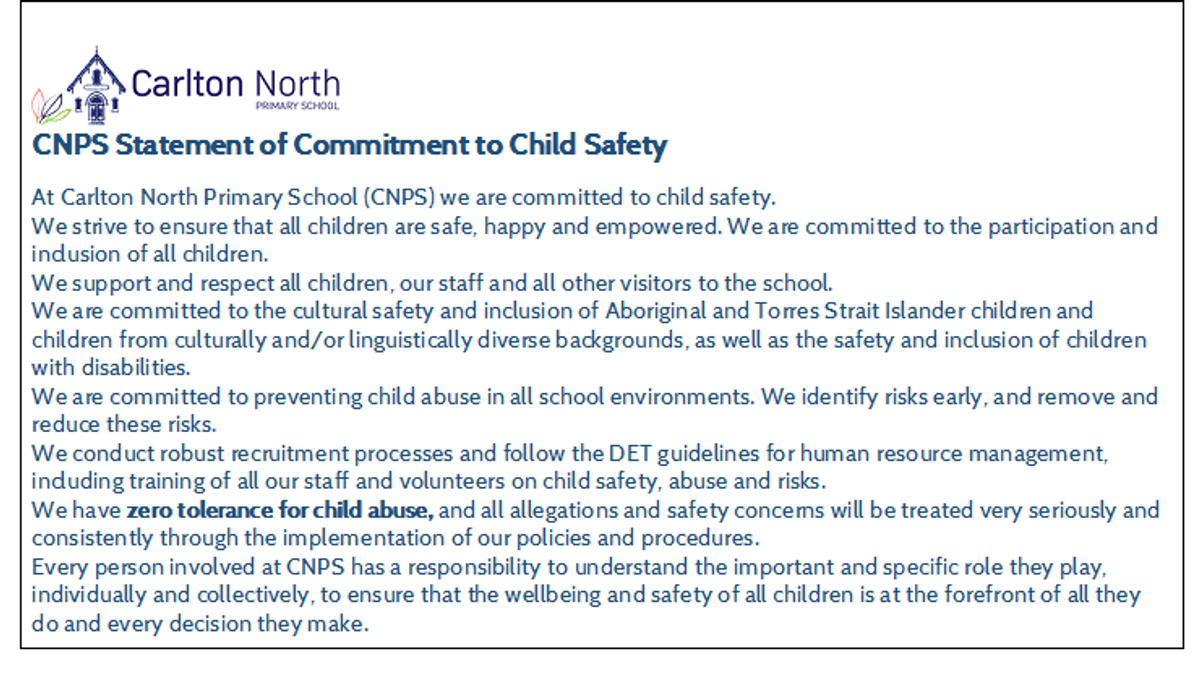
Carlton North Wellbeing
Parenting an ADHD child
ADHD is one of the most provocative diagnoses that exists in the world of child and adolescent psychology. Tell someone that your child has ADHD and armchair experts will tell you exactly what the issue is:
- There was no such thing as ADHD when I was a child.
- Sure, let’s give every kid a label. And medication. Give ‘em drugs. That’ll fix everything (usually said with profound sarcasm).
- That kid just needs clear boundaries. It’s nothing a good kick up the bum won’t fix.
- There’s nothing wrong with him. All kids are active and talkative and impulsive. You just need to parent him better.
- It’s all about diet. Get her off the sugar and she’ll be fine.
A parent whose child experiences ADHD will probably refrain from ripping the skin off your face when you say this to them. But they might want to. And that’s for three central reasons:
- All of those opinions have been shown to be categorically untrue
- Parents of children with ADHD hear these false statements from unqualified but over-confident ‘others’ all the time.
- They’re probably having a pretty rough day… because when you parent a child with an ADHD diagnosis, you often do have a pretty rough day.
So… what exactly is ADHD?
ADHD is an acronym. It’s short for attention-deficit/hyperactivity disorder. According to the National Institute of Mental Health , ADHD is:
a disorder marked by an ongoing pattern of inattention and/or hyperactivity-impulsivity that interferes with functioning or development.
According to the American Academy of Child Adolescent Psychiatry , a child with ADHD “may often be easily distracted, make careless mistakes, forget things, have trouble following instructions, or skip from one activity to another without finishing anything.” The Diagnostic and Statistical Manual for Mental Disorders also suggests that a child with ADHD will be engaged in constant movement, chatter, fidgeting, and energy expulsion, and behave impulsively by failing to consider consequences, interrupting others, and risk-taking.
This makes it sound as though a person diagnosed with ADHD is unable to stay focused on tasks (or life) and is simply overactive, with “ants in their pants”. But researchers like Russell Barkley , a world leader in ADHD research, argue that ADHD is probably less a disorder related to paying attention and more a challenge with self-regulation. The key word, according to Barkley, is inhibition. It’s just plain hard for a child with ADHD symptoms to stop themselves doing what they want to do now, even if it’s not helpful. This is because the concept of the “future” is just that – a concept. And if the future doesn’t really exist and all we have is now, the present will always take precedence over some weird future concept that might never arrive. This inability to hold onto the concept of the future (like “I need to put on my shoes so I can be at school on time”) means that the things that need to be done will always be at the mercy of immediate gratification. While walking to the bedroom to put on school shoes, your child might be distracted by the here and now of the graphic novel on the bedside table, or the lego on the desk, or the dog wagging its tail with a tennis ball in its mouth, or… get the picture? Because the future (school) is so far off that it doesn’t make sense and the distraction is right here – and because of a lack of regulation or inhibition – the new opportunity provides a present focus that means the original task won’t get done. This is infuriating (and tiring) for parents, and it is often distressing for children.
The controversies
In spite of the long-standing evidence that ADHD symptoms are real (and hereditary ), there are a number of reasons why ADHD is so controversial. They include:
1. ADHD characteristics describe most children
Little children are naturally inquisitive, impulsive, active, inappropriate, and unfazed by the future (and their parents’ plans to get out the door on time). School-aged children don’t like sitting in an office-like environment absorbing information (which is what many school classrooms are). They don’t want to come home from school and sit through round two - completing homework - when they could be active and move their bodies.
2. We diagnose ADHD so young, often when those characteristics are ‘normal’
According to Melbourne’s Royal Children’s Hospital , diagnoses can be given for ADHD from the age of 5. In fact, they state that “in some cases, especially when there is a strong family history of ADHD, a child may be assessed at a younger age.” This may be problematic because of the way children are wired. Expecting them to not exhibit ADHD traits at this early stage of life is developmentally inappropriate. There is some evidence that kids are being diagnosed even younger. A 2017 report by Melissa Danielson and her colleagues at the US Centre for Disease Control and Prevention (CDC) found that 2.4% of children aged 2-5 years received an ADHD diagnosis. Diagnosis at age 2 except in the rarest of circumstances is, to me, unconscionable.
3. ADHD doesn’t appear like other illnesses
If a child has a broken arm, it’s visible. If a child has diabetes, we can see it. If a child suffers from asthma, it becomes quickly apparent that something is wrong when they cannot breathe. ADHD doesn’t show itself in the same way as these other illnesses. Instead, it shows up as challenging behaviour. A child who is uninhibited, energetic, and unable to consider the future - or whose motivation for an important task is limited - is not seen as having an illness. They’re just called “a brat”.
4. Kids grow out of ADHD
It is true that symptoms typically improve as children get older, but close to 65% of children diagnosed with ADHD continue to have some symptoms of ADHD into adulthood, with about 15% continuing to meet full criteria for ADHD as adults. (For more, see here and here .)
5. Kids who are youngest in their class are more likely to be diagnosed
Adding weight to the hypothesis that it’s a development/maturation issue, new research suggests that the youngest kids in class are being diagnosed with ADHD, intellectual disability and even depression around 30% more often than their oldest classmates. Children born in the last quarter of a school year were 36% more likely than kids born in the first quarter of a school year to be diagnosed with ADHD. The youngest kids were 30% more likely to have an intellectual disability and 31% more likely to have depression than their older classmates. A US study of nearly half-a-million children found similar results. Oh, and it’s been replicated in Australia too.
So is ADHD legit?
There are other reasons we could explore for the controversy around ADHD. But let’s focus on whether ADHD really is a thing . Big names in ADHD research like Russell Barkley (in Taking Charge of ADHD ) make a clear argument that it’s a neuro-biological disorder. This simply doesn’t square with point 5, above. Being young isn’t the only risk factor for medical treatment for an ADHD diagnosis. Your racial profile is a predictor , as is your social class , the postcode you live in, along with other provocative considerations like who your therapist is, or your attitude to ADHD as a parent (or the teacher’s attitude). There’s sleep, bullying, adverse childhood experiences (like abuse or trauma), toxins, medial issues, being gifted (and thus, bored), being of below average intelligence (which can lead to major acting out), and so many other factors that have nothing to do with a child's neurobiology.
Where does this leave us?
I’m on the record – and have been for a number of years – as suggesting that labels are more useful on food products than on people, particularly children. My focus is less on whether ADHD is a thing, (and for the record, I do believe it is) and is more on how we can help children who are struggling with skills and capacity around emotional and behavioural regulation, motivation, focus, and socialisation. Whether you’re a skeptic or a believer, let’s acknowledge that about 5% of kids show up with the symptoms of ADHD. If this is the case, let’s consider:
Life for a child with ADHD
In a word… it stinks. Kids who exhibit ADHD symptoms are more likely to:
- Struggle with school. They don’t have an intelligence problem. They have a focus and inhibition problem, so they typically get lower grades.
- Struggle with friends. Kids with these challenging behaviours are the ones who miss out on birthday parties, sleepovers, bike rides in the neighbourhood, and so on. They don’t inhibit themselves so well (unless they’ve also got anxiety), they talk over people, they talk too much, and their communication is often overdone in their often desperate attempts to make and keep friends.
- Struggle with family relationships. Tired, stressed, ‘over-it’ parents sometimes do and say things that leave them feeling lousy. Siblings can be unkind too.
- Struggle with big emotions. When inhibition and regulation are your kryptonite, it means that big emotions get really big, and they’re hard to control.
- Struggle with big behaviours. Impulsivity and inattention mean that if anything is uninteresting, a child is going to want to move on. They’re looking for something worthy of their focus, and ‘boring stuff’ just doesn’t cut it. Lack of inhibition combined with big emotions can mean explosive behaviour.
- Struggle with self esteem. When they are constantly questioning their competence (or having the significant adults and peers in their life question their competence), they question their worth. This increases their risk of depression, anxiety, and other ‘comorbidities’.
The list goes on but you get the picture. It’s tough.
Life for a parent of a child with ADHD
This is where it gets really tough for us. Parents of kids with ADHD symptoms or diagnoses might:
- Feel confused.
- Feel discouraged as though they’re failing.
- Feel exhausted, stressed, and stretched.
- Feel disrespected.
- Feel judged.
- Feel broken.
- Feel so sad because all the dreams they had for their child seem to be vanishing into a haze of crazy big emotions and behaviours that don’t make sense and that create more problems.
- Feel scared.
What should parents do if their child has ADHD symptoms or diagnosis?
From a purely empirical point of view, there is surprisingly little high-quality research that provides clear direction on intervention for parents raising a child with ADHD (or its symptoms). All research studies of any reasonable quality that I found emphasise standard behavioural parenting techniques. And what research there is on these techniques (like this meta-analysis ) shows that it ‘works’, in that it alleviates challenging behaviour and reduces parent stress. Again, deferring to Russell Barkley (although I could have chosen nearly any ADHD expert), he suggests that parents rely on the same parenting practices that have been extolled for decades. His 8-step system recommends:
Step 1: Learn to pay positive attention to your child
Step 2: Use your powerful attention to gain compliance
Step 3: Give more effective commands
Step 4: Teach your child not to interrupt your activities
Step 5: Set up a home token system
Step 6: Learn to punish misbehaviour constructively
Step 7: Expand your use of time-out
Step 8: Learn to manage your child in public places
Barkely’s research resembles that of other similar parenting guidelines. He indicates that more than 75% of families who visit his clinic experience positive outcomes through implementing these steps. As a scholar and scientist, I have to report these findings to you. But… I find these suggestions unsatisfactory. Why? I’ve written extensively on the problems with time-out (while acknowledging research that shows it can be effective when administered “correctly”). I’ve argued strongly against token/reward systems . Ultimately, I don’t like a behavioural approach that demands we treat our children with sticks and carrots and make our love conditional on their behaviour. Why? Because at the very heart of the best parenting is unconditional positive regard and connection. Those techniques advocated by so many experts make connection contingent on child behaviour. They require no perspective, empathy, compassion or connection. Indeed, those techniques often sever connection at times when it’s needed most. And ultimately, ADHD seems to be an issue of connection. Have you noticed that your child is perfectly behaved when connection and love are strong? Another reason I feel the way I do is that, presently, “positive parenting” interventions are almost invisible in ADHD populations. There are barely anything beyond preliminary, small studies that can tell us whether positive parenting interventions actually work, including ‘ mindfulness’ interventions , positive psychology interventions, or even in the extraordinarily deep Self-Determination Theory .
Support for children and young people:
Kids Help Line: Information for young people aged 5 to 25 – free phone counselling as well as email and web chat online. See https://kidshelpline.com.au/ for further information.
Support for Parents & Carers:
Parentline is a phone service for parents and carers of children from birth to 18 years old. We offer confidential and anonymous counselling and support on parenting issues.
13 22 89



